
When we surf the social networks, we're constantly bombarded by warnings and tips from the most popular influential moms. But what happens if someone you trust shares information that could be harmful or even life-threatening? In this day and age of viral TikTok videos and health groups on Facebook, knowing how to spot fake news can save the life of someone you love. This story is familiar for many Filipino families, making it essential reading for any parent or sibling who cares for their loved ones' safety and health.
How Misinformation Spreads in Filipino Homes
In many barangays, word-of-mouth and recommendations from popular social media influencers matter more than professional medical advice. According to a survey carried out in 2023, over 70 percent of Filipinos get their health information from social media. When misinformation spreads—from untested home remedies to conspiracy theories about vaccines—families are risking their health. The danger is bigger when influential moms, or momfluencers, have thousands following every post. Their authority can turn false stories into "facts" in an instant.
The Real-Life Cost: A Family Tragedy

A heartbreaking story recently reported in the news shows this clearly. Two brothers lost their sister when she followed the advice of an influencer mom online, refusing proven medical treatments. The devastated brothers expressed concern about the influencer's role in promoting health conspiracy theories. Their story got people talking, bringing attention to just how quickly false medical advice can spread—and truly affect families across the Philippines.
A single post from a reputable influencer can convince thousands of mothers to avoid time-tested medicines — as an advocate for family health in Quezon City.
Why Are Momfluencers So Influential?
Momfluencers usually gain followers by sharing relatable stories and home tips. Their advice about childrearing, self-care, and alternative solutions can feel more personal than official health guidelines. With more than 60 million Filipinos online on Facebook, messages spread quickly. When moms and dads question vaccines, promote miracle cures, or doubt medical science, the influence—amplified by algorithm-driven feeds—can put whole families at risk.
How to Spot Fake Health News Online
- Find the source: Is the advice coming from a licensed doctor or just an influencer with no medical training?
- Look for evidence-based proof: Trust articles backed by research, not just personal stories.
- Watch out for emotional language: Scare tactics or dramatic statements are warning signs.
- Make sure it is consistent: Compare it to Department of Health advisories or public health bulletins.
- Be wary of miracle remedies: If it sounds too good to be true, it probably is.
Promoting these critical thinking habits at home can keep your loved ones safe from dangers posed by online misinformation.
Empowering Families to Fight Misinformation
Schools, barangay health centers, and local church groups are starting to include media literacy in their family health programs. Educators say teaching kids and teens how to spot fake news online helps protect every member of the family from making poor decisions. Family conversations are shifting from just health updates to sharing reliable resources and questioning claims. This community effort is very important in our digital age.
The Role of Empathy in Online Discussions
It's tempting to argue with family or friends when you see them sharing conspiracy theories. But experts say compassion works better. Instead of blaming, gently ask questions like "Where did you see that?" or "Did you check with a doctor?" This approach opens up discussion without causing family drama. The numbers show that open conversations make people think twice about false information.
In an age where health information spreads fast, Filipino families should stay sharp—from checking Facebook updates to chatting over merienda. By following these tips, we can make sure that care doesn't lead to harm, especially when it comes to parents or kids. Quality health information is always worth checking before sharing it with the people you care for.
Let me offer a real insight: When health news spreads on our social media and chats, it can be tough to know what's true. But I’ve found one simple rule helps — taking a moment before sharing. Asking, "Is this advice from a trusted source?" has really changed how my family views misleading health information, online fake news, and the influence of influential moms. I hope more kababayans practice the same to protect our loved ones.
Many are rethinking the effects of social media on family well-being. If you’ve ever wondered how to keep your family safe from fake news, these steps are essential info.
 Meg Magazine
Meg Magazine

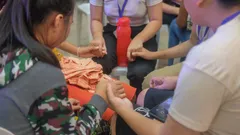

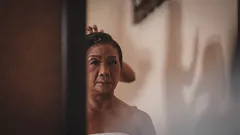
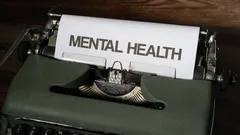

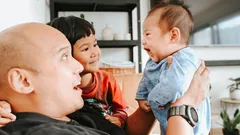


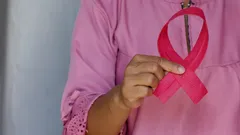





Comments